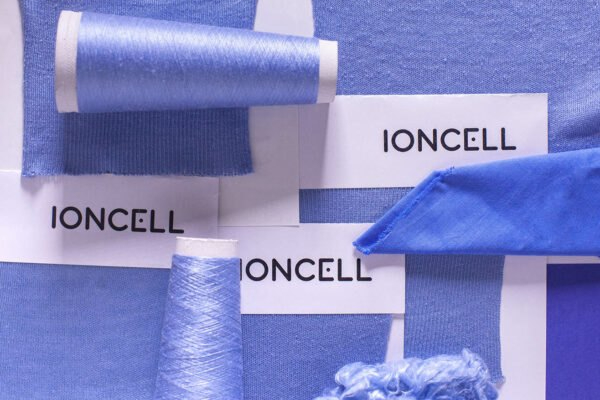
University of Aalto set up pilot line to produce new fiber
YarnsandFibers News Bureau 2021-12-15 11:15:39 – FinlandThe University of Aalto in Finland has installed a pilot production line for the Ioncell process of converting wood-based materials and textile waste into environmentally friendly, high-quality fibers.
Professor Herbert Sixta, who oversaw the creation of the Ioncell method, said that the continuous process is fundamentally different from generating fibers in tiny batches. In the laboratory, they refined their recycling processes to obtain a nearly 100% recovery rate for the cellulose solvent used in the process, which they will progressively achieve in the pilot plant as well. At the same time, to ensure a closed-loop operation, solvent recovery will be integrated into the continuous fiber process.
Marja Rissanen, a researcher, colored a batch of birch pulp fibers on the pilot line using natural indigo, a blue biodye derived from a flowering plant called woad farmed in Nivala, Finland, by the firm Natural Indigo. The fiber was spun into yarn and tested for durability after being dyed, and its tensile strength was found to be higher than cotton or viscose.
The yarn was knitted into fabric for a sportswear top design by researchers Kasia Gorniak and Elina Onkinen.
Gorniak said that after working with this yarn firsthand, I'm looking forward to seeing it used more broadly and commercially in the future. It's both soft and long-lasting.
According to reports, the process of forming a corporation to commercialize the Ioncell method is well along, and the search for a managing director is nearing completion. Early next year, the company will begin operations.
Janne Laine, vice president for innovation at Aalto University, said that consumers and investors are increasingly interested in sustainable textiles, making now a perfect time to start a spin-off firm. By establishing Ioncell, they are able to respond to consumer demands in the most efficient manner possible.
Market Intelligence
Ask for free sample Report

experience
Customer Base
dedicated team
Countries Served Worldwide









